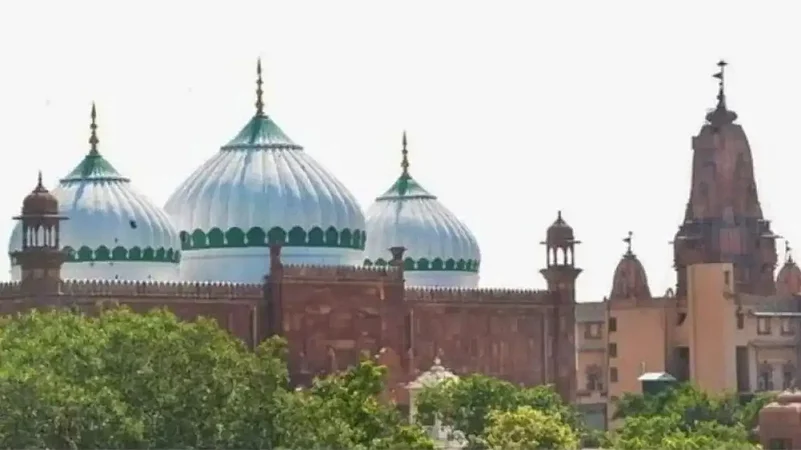A resident of Uttar Pradesh's Mathura has filed a petition in the Supreme Court that challenges the validity of certain sections of the Places of Worship (Special Provisions) Act, 1991 on grounds that they violate some of the fundamental rights provided in the Constitution of India.
Devkinandan Thakur has alleged in the petition that the sections of the Act violate constitutional provisions, including those related to equality before law and prohibition of discrimination on grounds of religion, race, caste, sex or place of birth.
The petition said that by the Act, the Centre has declared that religious character of a place of worship and pilgrimage as it existed on August 15, 1947 shall continue and barred the remedy. It challenges sections 2, 3, 4 of the Act claiming that it takes away right of judicial remedy of Hindus, Jains, Buddhists and Sikhs to take back their places of worship and pilgrimage and property which belong to the deity.
"The injury caused to Hindus, Jains, Buddhists, and Sikhs is extremely large because sections 2, 3, 4 of the Act has taken away the right to approach the court and thus right to judicial remedy has been closed,” said the petition, filed through advocate Ashutosh Dubey.
While section 3 of the Act deals with bar of conversion of places of worship, section 4 pertains to declaration as to the religious character of certain places of worship and bar of jurisdiction of courts.
The petition alleged that the Centre has "transgressed its legislative power" by barring remedy of judicial review which is a basic feature of the Constitution.
It said, "Hindus are fighting for restoration of birthplace of Lord Krishna from hundreds of years and peaceful public agitation continues but while enacting the Act, the Centre has excluded the birthplace of Lord Ram at Ayodhya but not the birthplace of Lord Krishna in Mathura, though both are the incarnations of Lord Vishnu, the creator."
The petition alleged that the Act is "void and unconstitutional" for many reasons and it infringes on the rights of Hindus, Jains, Buddhists and Sikhs to manage, maintain and administer the places of worship and pilgrimage.
The petition has sought to declare that sections 2, 3 and 4 of the Act are void and unconstitutional for allegedly being violative of Articles 14 (equality before law), 15 (prohibition of discrimination on grounds of religion, race, caste, sex or place of birth), 21 (protection of life and personal liberty), 25 (freedom of conscience and free profession, practice and propagation of religion), 26 (freedom to manage religious affairs) and 29 (protection of interests of minorities) of the Constitution in so far as they seek to validate the "places of worship" illegally constructed by the barbaric invaders.
Several other pleas, including the one filed by BJP leader and advocate Ashwini Upadhyay, challenging the validity of certain provisions of the 1991 Act have already been filed in the apex court.
These petitions have been filed at a time when legal proceedings are on in Mathura and Varanasi of Uttar Pradesh, regarding the Krishna Janmabhoomi-Shahi Idgah and Gyanvapi mosque respectively.
In Mathura, petitions have been filed to survey the Idgah and to move it, whereas a petition in Varanasi has sought permission for daily prayers before the idols on Gyanvapi Mosque's outer walls, which is located close to the famous Kashi Vishwanath temple.
(With PTI inputs)

















